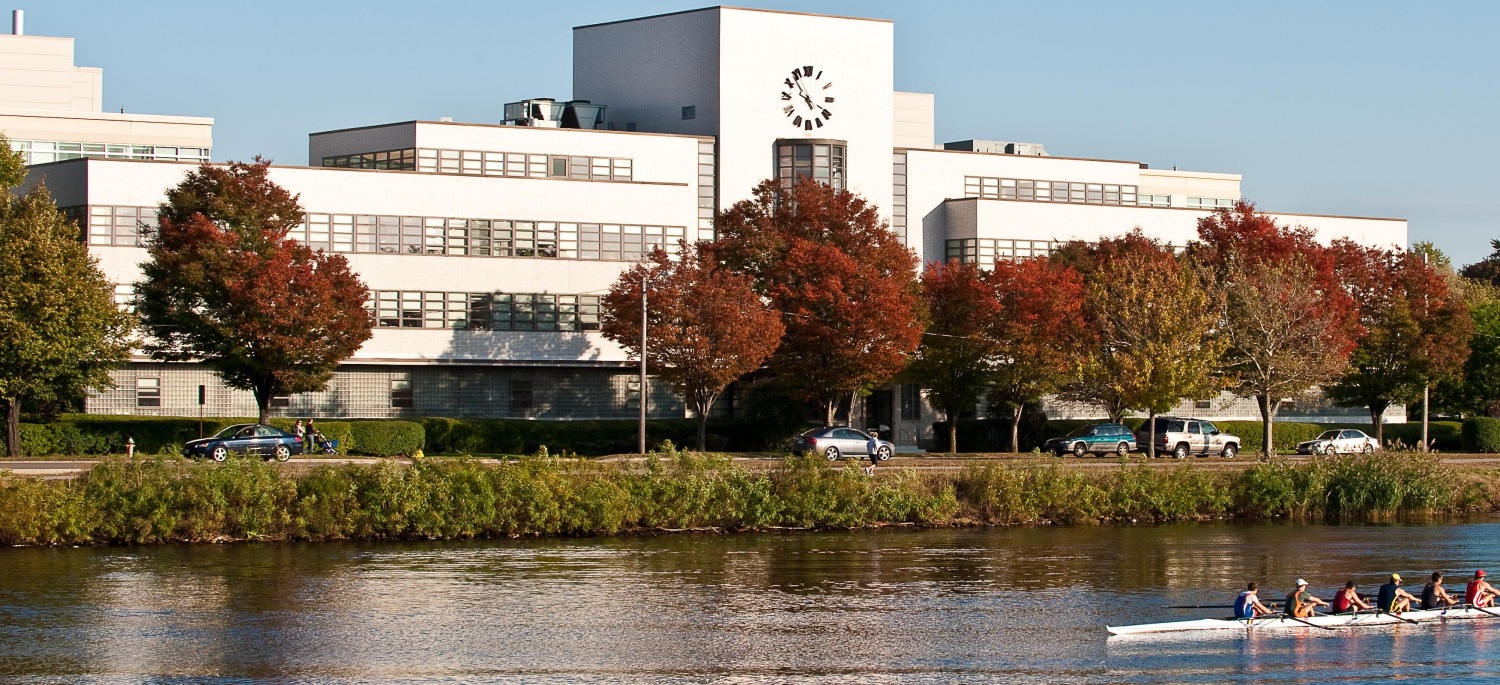Thermo Fisher Scientific, George Mason University, Johns Hopkins University and Toronto's University Health Network Extend Groundbreaking Collaboration
24th March 2010
Source:
Thermo Fisher Scientific

Accelerating biomarker identification for cancer and other diseases may speed development of diagnostic tests that enable earlier disease detection
Thermo Fisher Scientific Inc., announced that its Biomarker Research Initiatives in Mass Spectrometry (BRIMS) Center has extended its groundbreaking collaboration with George Mason University's Center for Applied Proteomics and Molecular Medicine (CAPMM), Johns Hopkins University and Toronto's University Health Network (UHN). For the past two years, these organizations have collaborated with BRIMS to accelerate the verification and validation of protein biomarkers for cancer and other diseases.
For years, biomarker researchers sought independent validation of putative biomarkers and routine, mass spectrometry-based quantitative assays suited for the rigors of clinical research. Thermo Fisher's BRIMS Center addressed these challenges by developing targeted SRM-based quantitative mass spectrometry workflows that enable rapid assay development and cross validation of biomarker assays across the network of laboratories. Each of the collaborators uses these biomarkers and assays as they perform research on identical Thermo Scientific TSQ Quantum Ultra triple quadrupole mass spectrometer platforms.
Working together, the BRIMS Center and the collaborators demonstrated an instrument platform and an end-to-end workflow from sample preparation through data analysis that are easily and reproducibly transferred from laboratory to laboratory, said Mary Lopez, director, BRIMS Center. By continuing our work with these leading research groups, we can extend their ground-breaking research by continuing to apply the SRM-based workflow to previously validated clinical biomarkers.
Together, we've taken a remarkable step forward by combining the BRIMS Center's expertise in workflow development, state-of-the-art Thermo Scientific technologies and the talent of leading researchers with valuable clinical expertise, said Iain Mylchreest, vice president and general manager, life science mass spectrometry, Thermo Fisher Scientific. By delivering reproducible, quantitative verification and validation of protein biomarkers in a clinical research setting, the researchers are now that much closer to their goal of developing tests for cancer.
Members of the collaboration team presented their results, an inter-lab reproducibility study, at the U.S. Human Proteome Organization 2010 meeting, March 7-10, in Denver, Colorado. The study is the first inter-lab study to demonstrate reproducible determination of protein abundance in a complex matrix such as blood. The study also demonstrated that an optimized biomarker assay can be implemented relatively quickly across several laboratories without need for additional optimization.
About the Collaborators
Drs. Petricoin and Liotta, co-directors of George Mason University's Center for Applied Proteomics and Molecular Medicine, are innovators in the field of proteomics. Together they have developed important proteomic strategies and technologies, such as laser capture microdissection and reverse phase protein microarrays which are now accepted methods for disease diagnosis and treatment, and new biomarker-discovery technologies which make use of novel biomarker-harvesting nanoparticles. They have brought many of these technologies and biomarkers to the bedside. Drs. Petricoin and Liotta have authored more than 190 proteomic-related, peer-reviewed articles, and were among the founding members of the Human Proteome Organization (HUPO).
For more about CAPMM: http://capmm.gmu.edu/EN/.
Dr. Chan from Johns Hopkins University is an internationally recognized expert in immunoassay, clinical proteomics and biochemical tumor markers, particularly prostate, breast and ovarian cancer biomarkers. The focus of his research is the development and application of proteomic and immunologic techniques in the diagnosis, management and understanding of cancer. He has edited and written five books and published more than 200 articles in the areas of immunoassay, immunoassay automation, diagnostic endocrinology and tumor markers. Dr. Chan is actively involved in the Human Proteome Organization (HUPO) and serves as chairman of its committee responsible for the development of reference specimens for a global comprehensive study of the human proteome.
For more about Dr. Chan: http://urology.jhu.edu/danielchan/index.php.
With more than 20 years of experience in cancer diagnostics, Dr. Eleftherios Diamandis of Toronto's University Health Network is recognized around the world as a leading researcher in cancer biomarkers. In addition to his position at UHN, Dr. Diamandis is division head of clinical biochemistry in the department of laboratory medicine and pathobiology at the University of Toronto in Ontario.
For more about Toronto's UHN: http://www.uhn.ca.
The Thermo Fisher Scientific BRIMS Center, located in Cambridge, Mass., opened in 2004 with the mission to support the development of methodologies and applications for protein biomarker identification. Equipped with a complete portfolio of Thermo Scientific mass spectrometers and staffed with a team of scientists with expertise in mass spectrometry, protein techniques informatics and biostatistics, the BRIMS Center also develops leading software tools for proteomic research.
For years, biomarker researchers sought independent validation of putative biomarkers and routine, mass spectrometry-based quantitative assays suited for the rigors of clinical research. Thermo Fisher's BRIMS Center addressed these challenges by developing targeted SRM-based quantitative mass spectrometry workflows that enable rapid assay development and cross validation of biomarker assays across the network of laboratories. Each of the collaborators uses these biomarkers and assays as they perform research on identical Thermo Scientific TSQ Quantum Ultra triple quadrupole mass spectrometer platforms.
Working together, the BRIMS Center and the collaborators demonstrated an instrument platform and an end-to-end workflow from sample preparation through data analysis that are easily and reproducibly transferred from laboratory to laboratory, said Mary Lopez, director, BRIMS Center. By continuing our work with these leading research groups, we can extend their ground-breaking research by continuing to apply the SRM-based workflow to previously validated clinical biomarkers.
Together, we've taken a remarkable step forward by combining the BRIMS Center's expertise in workflow development, state-of-the-art Thermo Scientific technologies and the talent of leading researchers with valuable clinical expertise, said Iain Mylchreest, vice president and general manager, life science mass spectrometry, Thermo Fisher Scientific. By delivering reproducible, quantitative verification and validation of protein biomarkers in a clinical research setting, the researchers are now that much closer to their goal of developing tests for cancer.
Members of the collaboration team presented their results, an inter-lab reproducibility study, at the U.S. Human Proteome Organization 2010 meeting, March 7-10, in Denver, Colorado. The study is the first inter-lab study to demonstrate reproducible determination of protein abundance in a complex matrix such as blood. The study also demonstrated that an optimized biomarker assay can be implemented relatively quickly across several laboratories without need for additional optimization.
About the Collaborators
Drs. Petricoin and Liotta, co-directors of George Mason University's Center for Applied Proteomics and Molecular Medicine, are innovators in the field of proteomics. Together they have developed important proteomic strategies and technologies, such as laser capture microdissection and reverse phase protein microarrays which are now accepted methods for disease diagnosis and treatment, and new biomarker-discovery technologies which make use of novel biomarker-harvesting nanoparticles. They have brought many of these technologies and biomarkers to the bedside. Drs. Petricoin and Liotta have authored more than 190 proteomic-related, peer-reviewed articles, and were among the founding members of the Human Proteome Organization (HUPO).
For more about CAPMM: http://capmm.gmu.edu/EN/.
Dr. Chan from Johns Hopkins University is an internationally recognized expert in immunoassay, clinical proteomics and biochemical tumor markers, particularly prostate, breast and ovarian cancer biomarkers. The focus of his research is the development and application of proteomic and immunologic techniques in the diagnosis, management and understanding of cancer. He has edited and written five books and published more than 200 articles in the areas of immunoassay, immunoassay automation, diagnostic endocrinology and tumor markers. Dr. Chan is actively involved in the Human Proteome Organization (HUPO) and serves as chairman of its committee responsible for the development of reference specimens for a global comprehensive study of the human proteome.
For more about Dr. Chan: http://urology.jhu.edu/danielchan/index.php.
With more than 20 years of experience in cancer diagnostics, Dr. Eleftherios Diamandis of Toronto's University Health Network is recognized around the world as a leading researcher in cancer biomarkers. In addition to his position at UHN, Dr. Diamandis is division head of clinical biochemistry in the department of laboratory medicine and pathobiology at the University of Toronto in Ontario.
For more about Toronto's UHN: http://www.uhn.ca.
The Thermo Fisher Scientific BRIMS Center, located in Cambridge, Mass., opened in 2004 with the mission to support the development of methodologies and applications for protein biomarker identification. Equipped with a complete portfolio of Thermo Scientific mass spectrometers and staffed with a team of scientists with expertise in mass spectrometry, protein techniques informatics and biostatistics, the BRIMS Center also develops leading software tools for proteomic research.
Similar articles
More from Thermo Fisher Scientific
- Thermo Fisher Scientific Launches New Total Nitrogen and Sulfur Analyzer for Precise and Accurate Analysis of Petroleum Products Using a Single Introduction Module 19th October 2011
- Thermo Fisher Scientific Presents Innovative Instrumentation at GIFA 2011 for Metal Measurement and Analysis 21st June 2011
- New Thermo Scientific K-Alpha Enables Faster Analysis and Improved Chemical Detection for Chemical Surface Characterization 18th October 2010
- Thermo Fisher Scientific's Nicolet iS5 Spectrometer Provides Performance, Price and Fit for Entry-Level FT-IR 7th September 2010












Write a comment
No comments